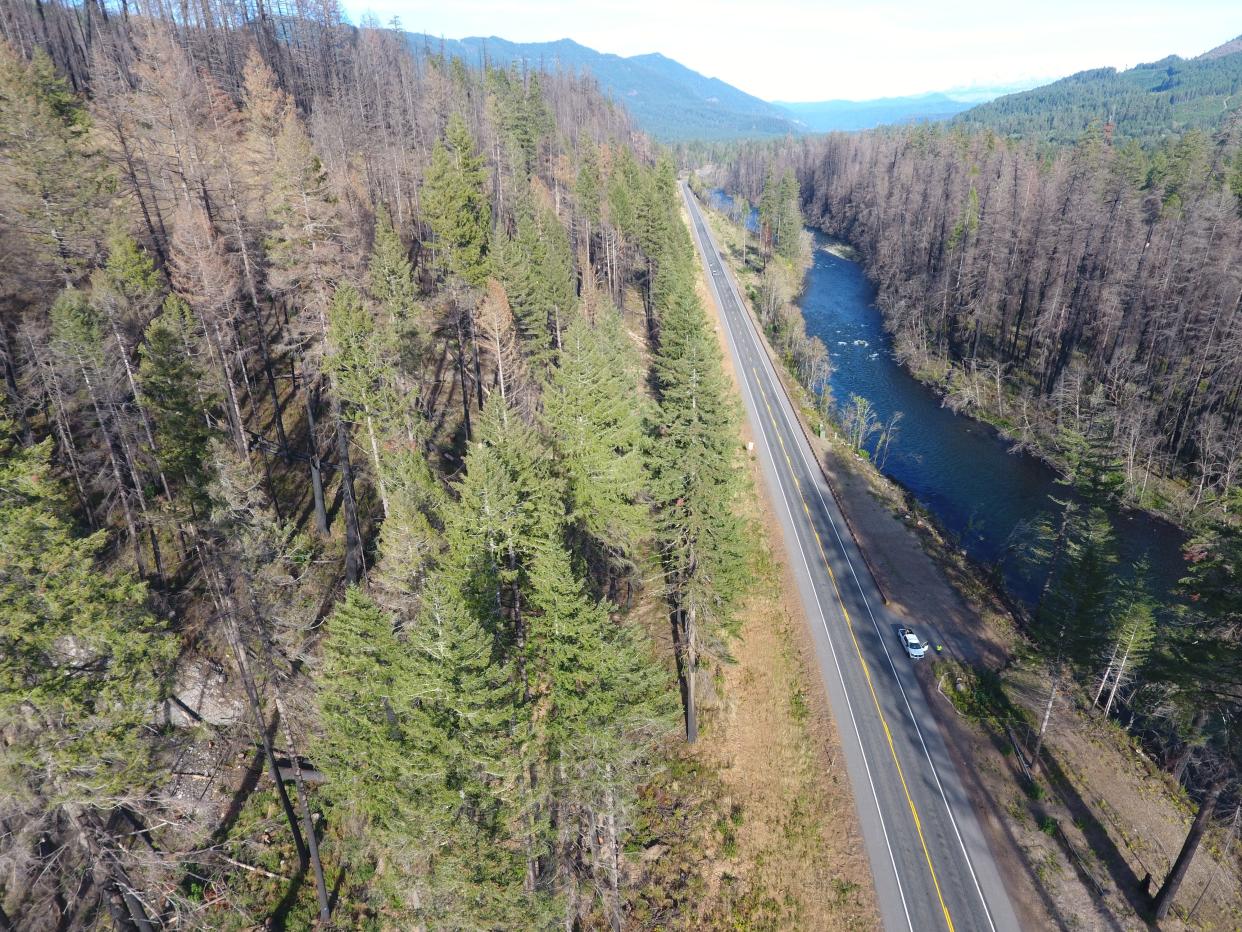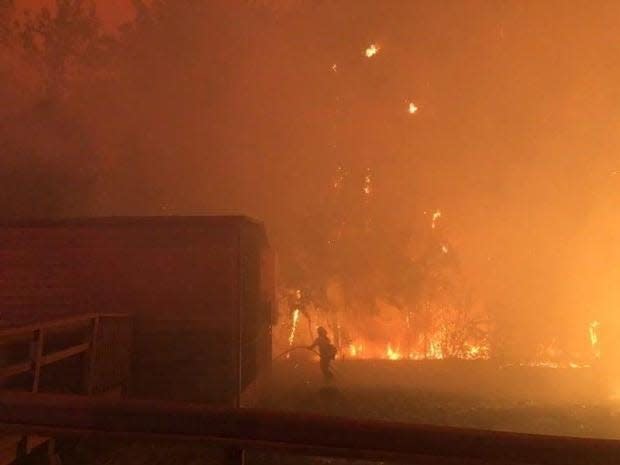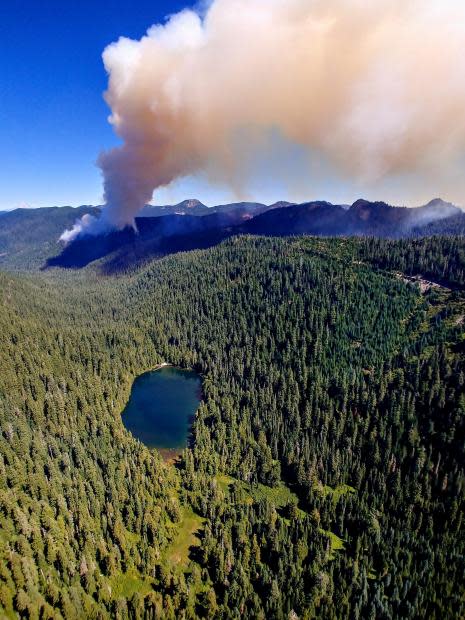Federal judge halts roadside hazard tree removal project in Willamette National Forest

A federal judge has paused U.S. Forest Service plans for extensive roadside hazard tree-cutting in the Willamette National Forest.
U.S. District Judge Michael McShane issued a preliminary injunction Friday halting plans for tree-cutting on 400 miles of roads in the Willamette National Forest. McShane said a lawsuit arguing the plan is against the law has merit and can't begin before a court rules.
The Forest Service planned to cut roadside trees likely to fall down after the 2020 Labor Day Fires, which included the 174,000-acre Holiday Farm Fire that burned through the McKenzie River Valley. The Forest Service concluded the project is under a category of road maintenance that doesn't require an environmental study before it is conducted.
The project was set to begin Sunday, Nov. 7.
For local stories that matter, subscribe today.
McShane agreed with environmental groups suing the Forest Service that a previous 9th Circuit Court case precludes road maintenance from being used as a reason not to have to conduct an environmental study on large-scale hazard tree removal projects.
The Willamette National Forest project is larger than the project in that previous court case.
He issued an injunction stopping the project from proceeding until the lawsuit is decided.
The lawsuit likely will go to court early next year.

The National Environmental Policy Act requires environmental impact studies before many federal projects but allows for a class of actions known as categorical exclusions, which are believed to pose no risk to the human environment and do not require studies.
"Given the immense scale of this project, which allows the felling of trees along 404 miles of forest roads, plaintiffs have demonstrated a likelihood of success on the claim that the Forest Service may not use the road repair and maintenance (categorical exclusion) to avoid any NEPA review of the project," McShane said in the injunction.
More: Despite allegations of mismanagement, report finds Oregon handled wildfire debris removal well
Eugene-based environmental group Cascadia Wildlands, along with Oregon Wild, Willamette Riverkeeper and Forest Service Employees for Environmental Ethics, sued the Forest Service over the use of the categorical exclusion for the roadside hazard tree removal project. The group argued the project essentially would allow the Forest Service to conduct logging operations on nearly 20,000 acres of forest without a NEPA analysis.
The Forest Service argued the project is necessary to make post-wildfire roads safe.
The Forest Service concluded the repair and maintenance categorical exclusion "is applicable because to maintain the ability of these fire-affected roads to functionally provide access to the forest, danger trees which could strike the road must be abated."

Though the purpose of the project is to removal hazard trees, it allows for salvageable logs to be marketed as a means of offsetting its overall cost, according to the injunction.
"This project allows commercial logging that, at least at this stage, will almost certainly have more than a minimal impact on the environment," McShane said in his injunction.
More: Local environmental group warns of lawsuit over BLM salvage harvest
Cascadia Wildlands and other environmental groups have been fighting against salvage harvests and hazard tree removal in areas affected by the Holiday Farm Fire, including a 910-acre salvage harvest near Vida where the Bureau of Land Management used a Trump-era rule change increasing the acreage of forest a categorical exclusion covers.
“The court recognized that this massive post-fire logging project was not routine maintenance,” said Nick Cady, legal director for Cascadia Wildlands, in a news release. “The Forest Service attempted to use the fires as cover to commercially log in scenic areas and on remote roads, which risked further harm to these sensitive burned landscapes and undermined confidence in their ability to manage public lands.”
Contact reporter Adam Duvernay at aduvernay@registerguard.com. Follow on Twitter @DuvernayOR.
This article originally appeared on Register-Guard: Willamette National Forest roadside hazard tree removal plan halted
